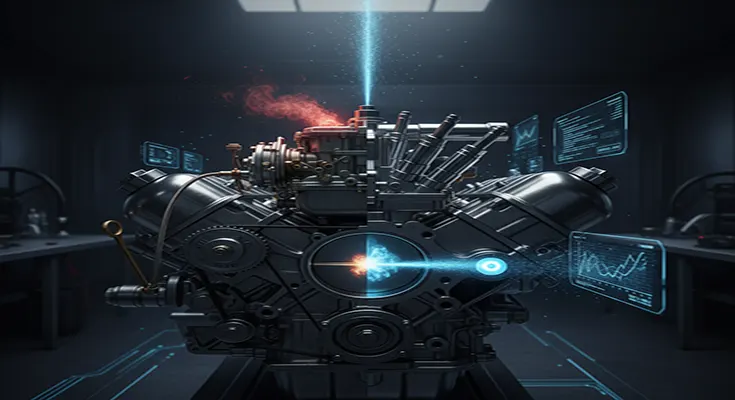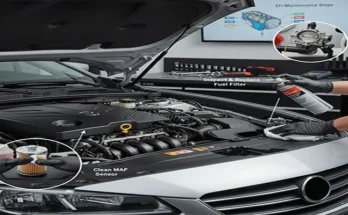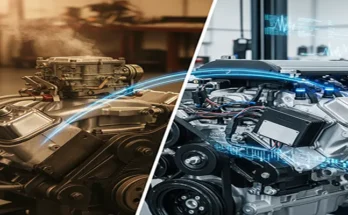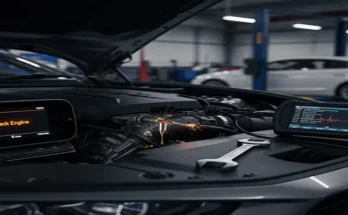The internal combustion engine, the heart of almost every vehicle, relies on a perfect mix of air and fuel to generate power. For decades, the carburetor handled this task, but today’s engines demand a level of precision that only Electronic Fuel Injection (EFI) can provide. Replacing the mechanical limitations of old, EFI systems have ushered in an era of unprecedented engine performance, efficiency, and reliability.
The EFI Advantage: Precision Control
At its core, the superiority of EFI over older methods lies in its precise control over the air-fuel ratio. Unlike a carburetor, which relies on the physical Venturi effect and is susceptible to external conditions, the EFI system is managed by a sophisticated computer.
The central component of the system is the Electronic Control Unit (ECU)—often referred to as the engine’s “brain.” The ECU constantly monitors critical engine conditions through a network of sensors. These sensors measure:
- Engine Speed (RPM)
- Throttle Position
- Intake Air Temperature and Mass (MAF/IAT)
- Engine Coolant Temperature
- Manifold Absolute Pressure (MAP)
- Oxygen/Lambda Sensor readings in the exhaust
The ECU uses this real-time data to instantaneously calculate the exact, optimal amount of fuel needed for combustion, known as the stoichiometric ratio (approximately 14.7 parts air to 1 part fuel for gasoline). It then signals the fuel injectors to open for a precisely calculated duration, atomizing the fuel into a fine mist directly into the intake manifold or the combustion chamber. This unparalleled accuracy translates directly into significant performance improvements.
Key Performance Improvements
The switch to EFI fundamentally enhances engine operation in several crucial ways:
1. Increased Power and Torque
By consistently maintaining the ideal air-fuel ratio across all engine speeds and loads, EFI ensures maximum and complete combustion. This optimization eliminates the potential for a mixture that is too rich (too much fuel) or too lean (too little fuel), which can cause power loss. The result is higher peak power and torque compared to a carbureted version of the same engine. Furthermore, EFI offers a more rapid and predictable throttle response, making the vehicle feel more dynamic to the driver.
2. Superior Fuel Efficiency
The ability of the ECU to meter fuel with extreme precision means that less fuel is wasted. In contrast, carburetors often deliver a rich mixture during certain operating conditions, leading to inefficient burning. By injecting only the necessary amount of fuel, EFI engines achieve:
- Optimized fuel economy (better mileage).
- Automatic fuel-cut-off during deceleration (coasting), further conserving fuel.
3. Enhanced Starting and All-Weather Reliability
Carburetors are notoriously sensitive to changes in temperature and altitude. Cold starting can be challenging, and performance can degrade at high altitudes. EFI systems virtually eliminate these issues. The ECU automatically compensates for:
- Cold or Hot Starts: It calculates the specific mixture needed for immediate ignition in any temperature.
- Altitude Changes: It adjusts the air-fuel ratio based on the lower air density at higher altitudes, ensuring consistent performance.
4. Reduced Emissions
Meeting increasingly strict global emissions standards is a core driver for EFI technology. The precise control over the air-fuel mixture ensures a cleaner burn, leading to significantly lower levels of harmful pollutants such as unburnt hydrocarbons ($\text{HC}$), carbon monoxide ($\text{CO}$), and nitrogen oxides ($\text{NO}_{\text{x}}$). This optimization is essential for the effective operation of modern exhaust gas recirculation (EGR) and catalytic converter systems.
5. Higher Reliability and Less Maintenance
The consistent, computer-controlled nature of the EFI system improves overall engine health and reliability. EFI minimizes the issues associated with sub-optimal mixtures, such as fouled spark plugs or random engine stoppages. Unlike carburetors, which often require periodic manual adjustments or “tuning,” EFI systems are self-adjusting and maintain their optimal state of tune automatically, reducing the frequency and complexity of maintenance.
The Electronic Fuel Injection system is a foundational technology of modern automotive engineering. By moving the critical task of fuel delivery from a mechanical device to a precise, sensor-driven, and computer-controlled system, EFI delivers clear, measurable improvements in power, efficiency, environmental impact, and reliability. It is the key to why today’s engines are able to strike a harmonious balance between high performance and economic operation.





